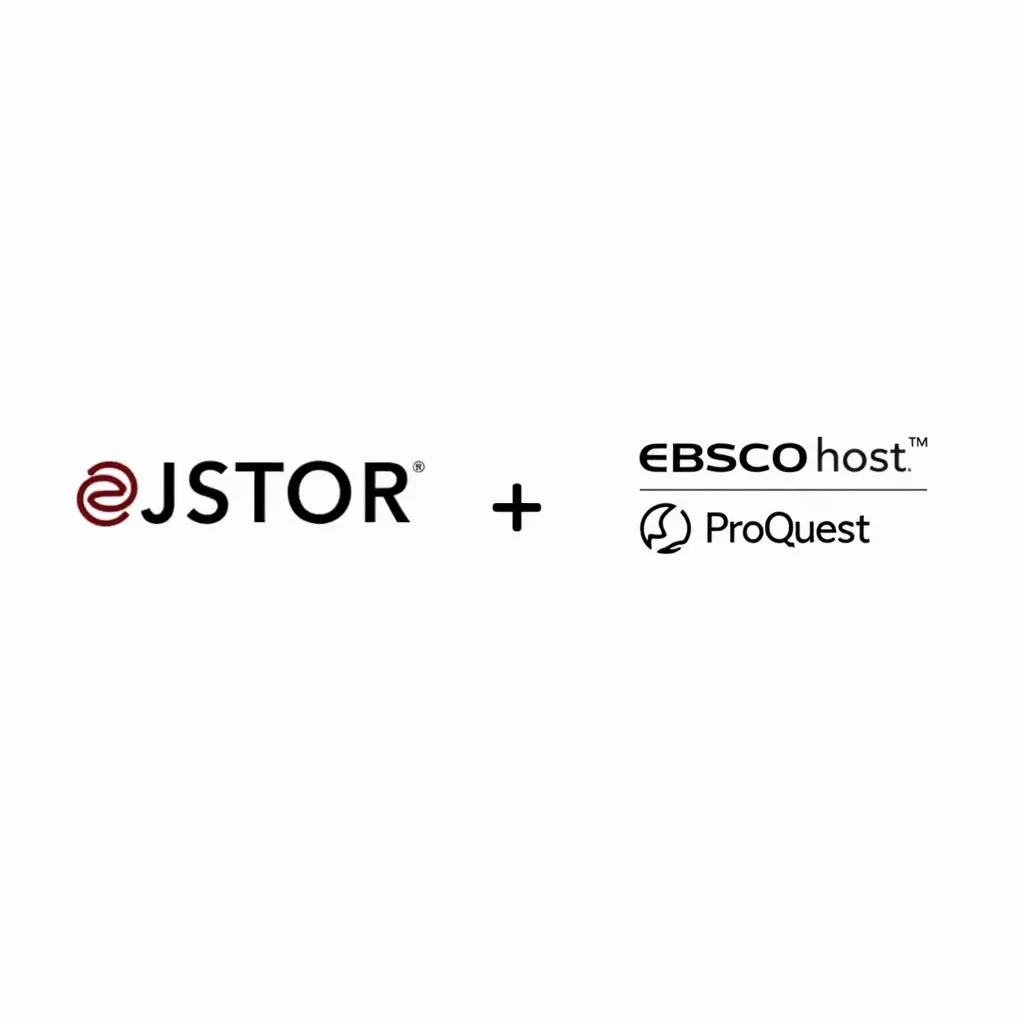When diving deep into a research rabbit hole, you often find yourself yearning for the reliable embrace of an encyclopedia. That comprehensive overview, that trusted source of foundational knowledge – it’s a researcher’s comfort zone. But in our digital age, thumbing through dusty volumes just won’t cut it. So, what academic research tool acts as your digital bridge to the world of encyclopedias?
Unveiling the Power of Online Databases
While the internet itself might seem like a vast, swirling sea of information, there are specific harbors designed to cater to the discerning academic. Online databases are your answer, acting as curated gateways to a wealth of credible and scholarly resources, including those coveted encyclopedias. But not all databases are created equal.
 Online Databases for Academic Research
Online Databases for Academic Research
JSTOR, EBSCOhost, and ProQuest: The Encyclopedia Giants
These three titans dominate the academic database landscape, each boasting access to a vast array of encyclopedias alongside journals, ebooks, and other research materials.
-
JSTOR: Known for its extensive archive of historical journals and primary sources, JSTOR also offers a robust collection of encyclopedias, particularly in the humanities and social sciences.
-
EBSCOhost: This powerhouse provides access to a diverse range of databases, many of which include full-text encyclopedias spanning various disciplines. EBSCOhost is especially helpful for its intuitive search interface and subject-specific databases.
-
ProQuest: Primarily known for dissertations and theses, ProQuest also offers a strong selection of encyclopedias, often focusing on specific subject areas like business, health, or education.
 Logos of JSTOR, EBSCOhost, and ProQuest
Logos of JSTOR, EBSCOhost, and ProQuest
Beyond the Big Three: Exploring Subject-Specific Databases
While the titans reign supreme, don’t underestimate the value of niche databases, especially when you’re dealing with a highly specialized research topic. These databases often focus on a particular discipline and offer access to hyper-focused encyclopedias you won’t find in broader databases.
For example:
-
Oxford Reference Online: A haven for humanities scholars, this database grants access to a vast collection of dictionaries, encyclopedias, and companion works from the esteemed Oxford University Press.
-
Gale Literature Resource Center: Calling all literature enthusiasts! This database is your gateway to literary encyclopedias, critical essays, author biographies, and more.
-
APA PsycINFO: For those exploring the world of psychology, this database, produced by the American Psychological Association, offers access to a wealth of psychological encyclopedias, handbooks, and dictionaries alongside journal articles and research studies.
Tips for Navigating the Database Labyrinth
-
Consult Your Librarian: These information ninjas are masters of the database universe. They can guide you to the most relevant resources for your specific research needs.
-
Utilize Keywords and Search Filters: Be strategic with your search terms and use the database’s built-in filters to narrow down your results and find precisely what you’re looking for.
-
Don’t Limit Yourself: Explore multiple databases and encyclopedia entries to gain a comprehensive understanding of your research topic.
 Student Consulting with a Librarian for Database Help
Student Consulting with a Librarian for Database Help
Unlocking a World of Knowledge
By harnessing the power of online databases, you gain access to a vast and ever-growing collection of encyclopedias and other scholarly resources, empowering you to delve into any research topic with confidence and precision. So, embrace the digital age of research and watch your academic pursuits soar to new heights.
FAQs: Navigating Online Databases and Encyclopedias
1. Are these online databases free to use?
While some databases may offer limited free trials or open access options, most require a subscription, typically provided through academic institutions or libraries.
2. Can I cite information found in online encyclopedias?
Absolutely! Just like their print counterparts, online encyclopedias are citable sources. Be sure to follow the appropriate citation style (e.g., MLA, APA, Chicago) when referencing information from these resources.
3. What if my library doesn’t have access to a specific database?
Don’t despair! Many libraries offer interlibrary loan services, allowing you to request access to materials held by other institutions.
4. Are online encyclopedias updated regularly?
Most reputable online databases strive to keep their content current, with many offering regular updates and revisions to their encyclopedia entries.
5. Can I access these databases remotely?
Many academic databases allow remote access for students and faculty affiliated with subscribing institutions. You’ll typically need to log in with your institution’s credentials to access the content remotely.
Need Help with Your Research?
Contact us at Phone Number: 0904826292, Email: research@gmail.com or visit us at No. 31, Alley 142/7, P. Phú Viên, Bồ Đề, Long Biên, Hà Nội, Việt Nam. Our dedicated team is available 24/7 to assist you.